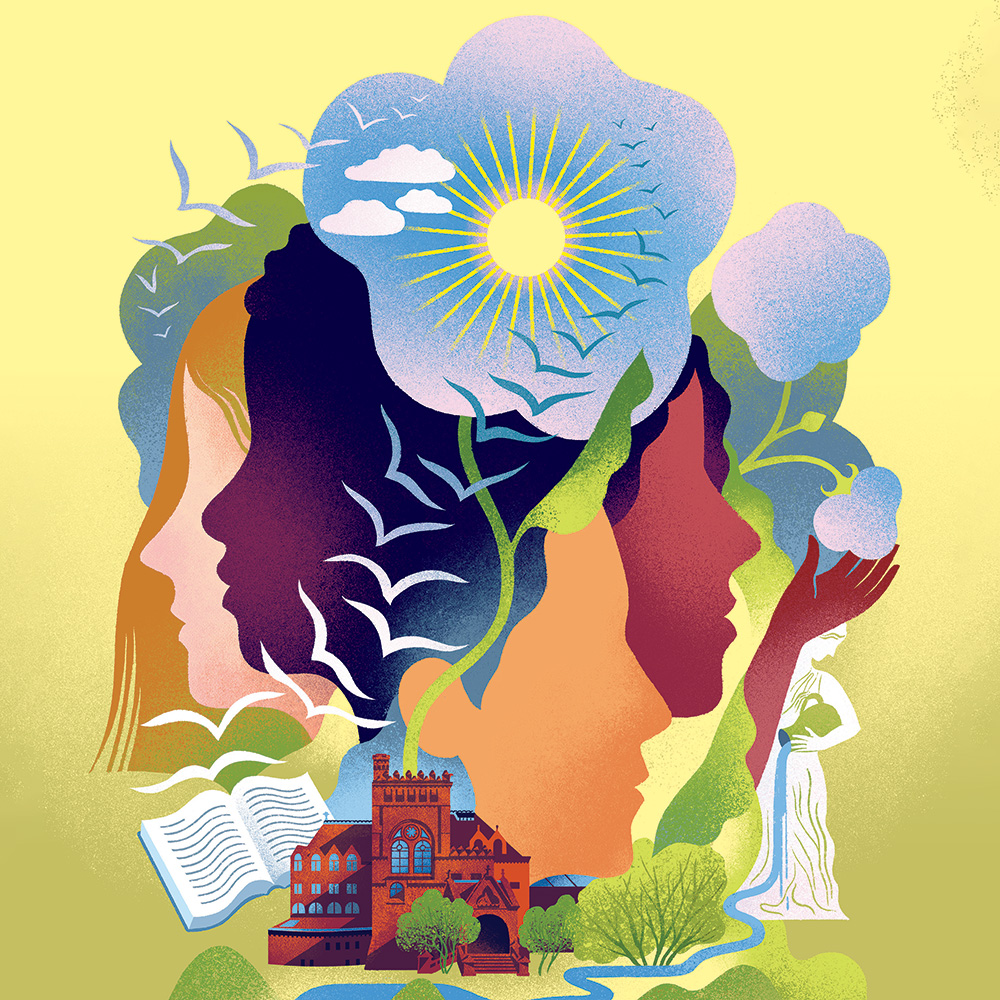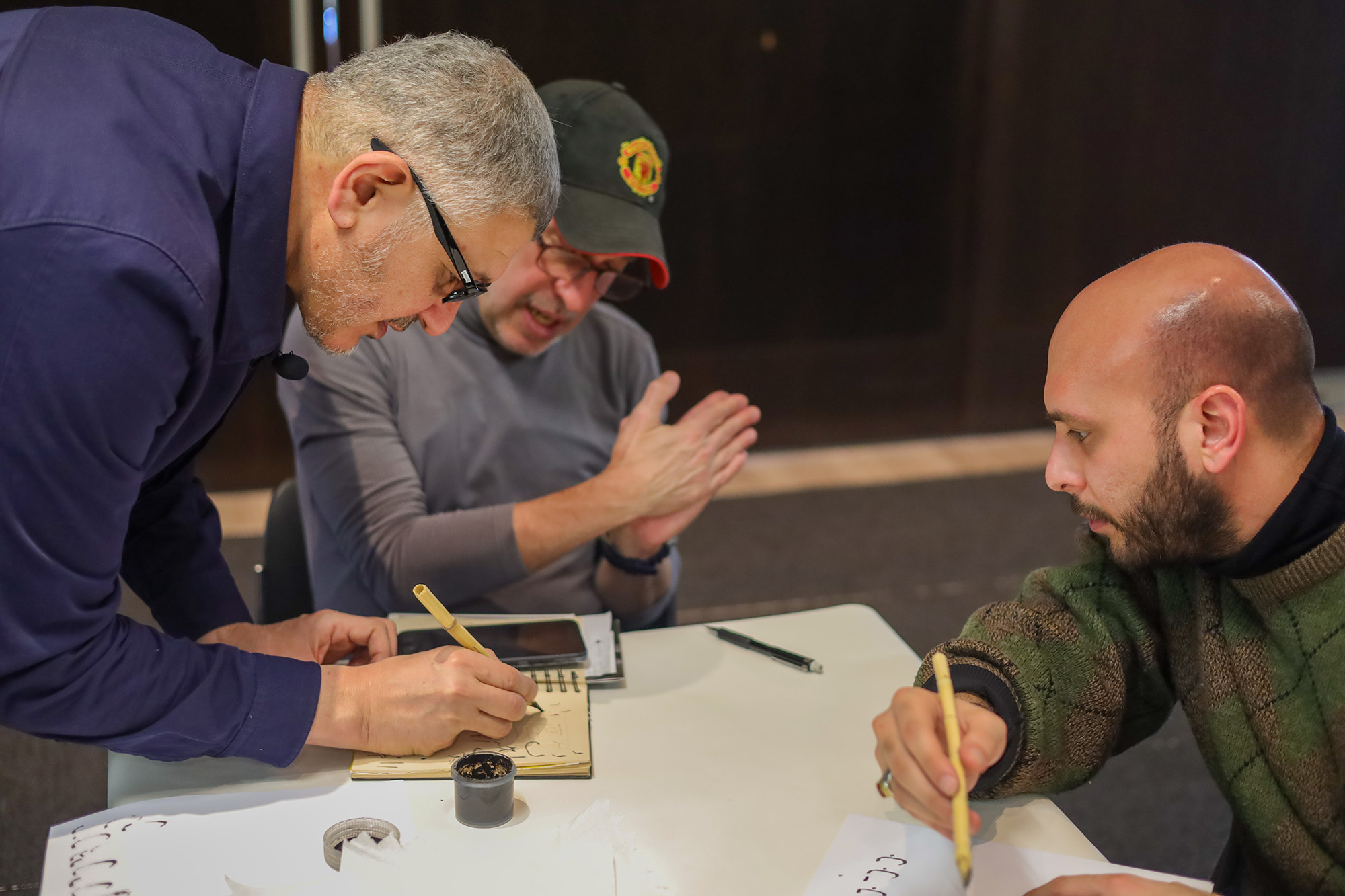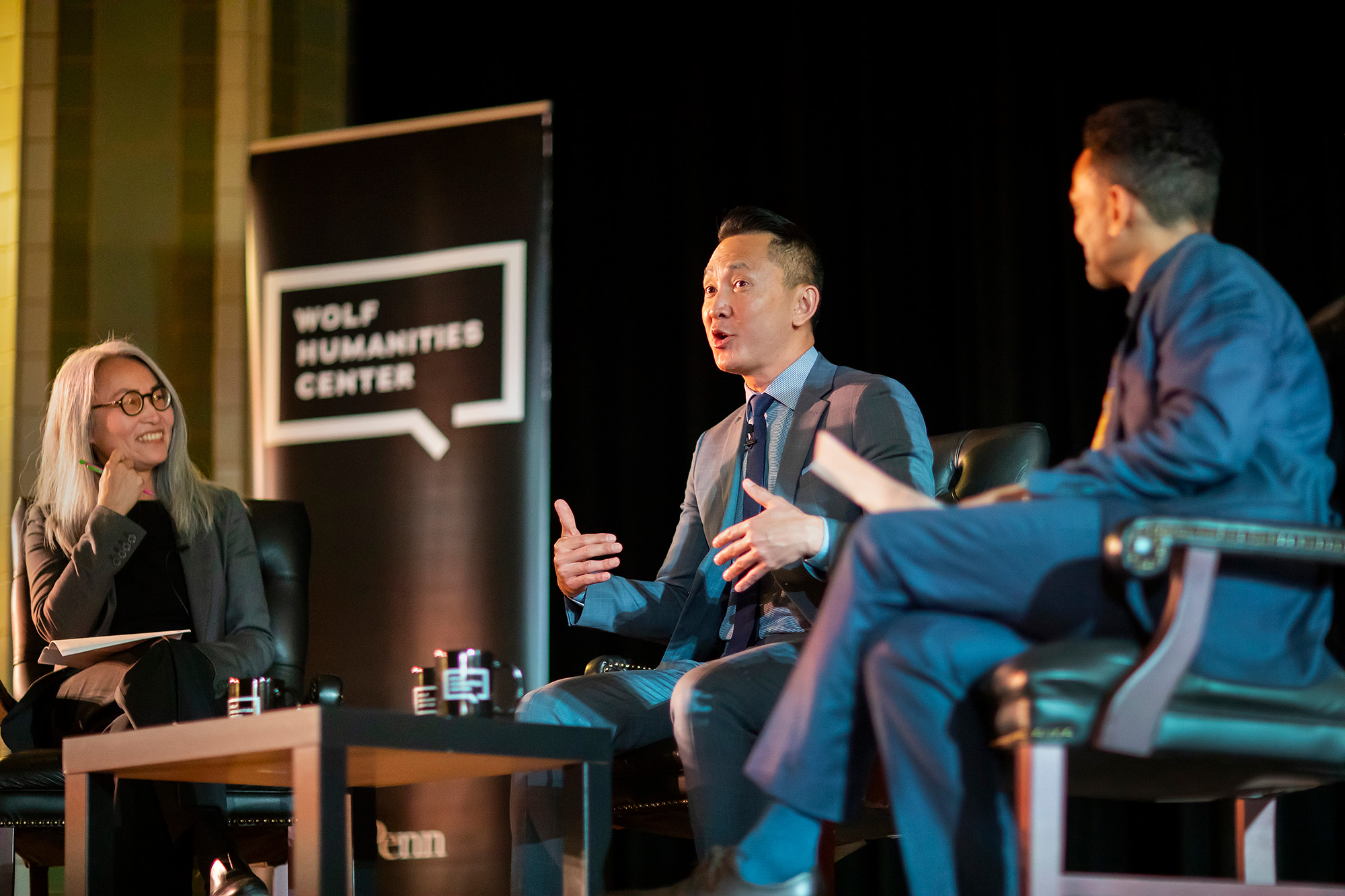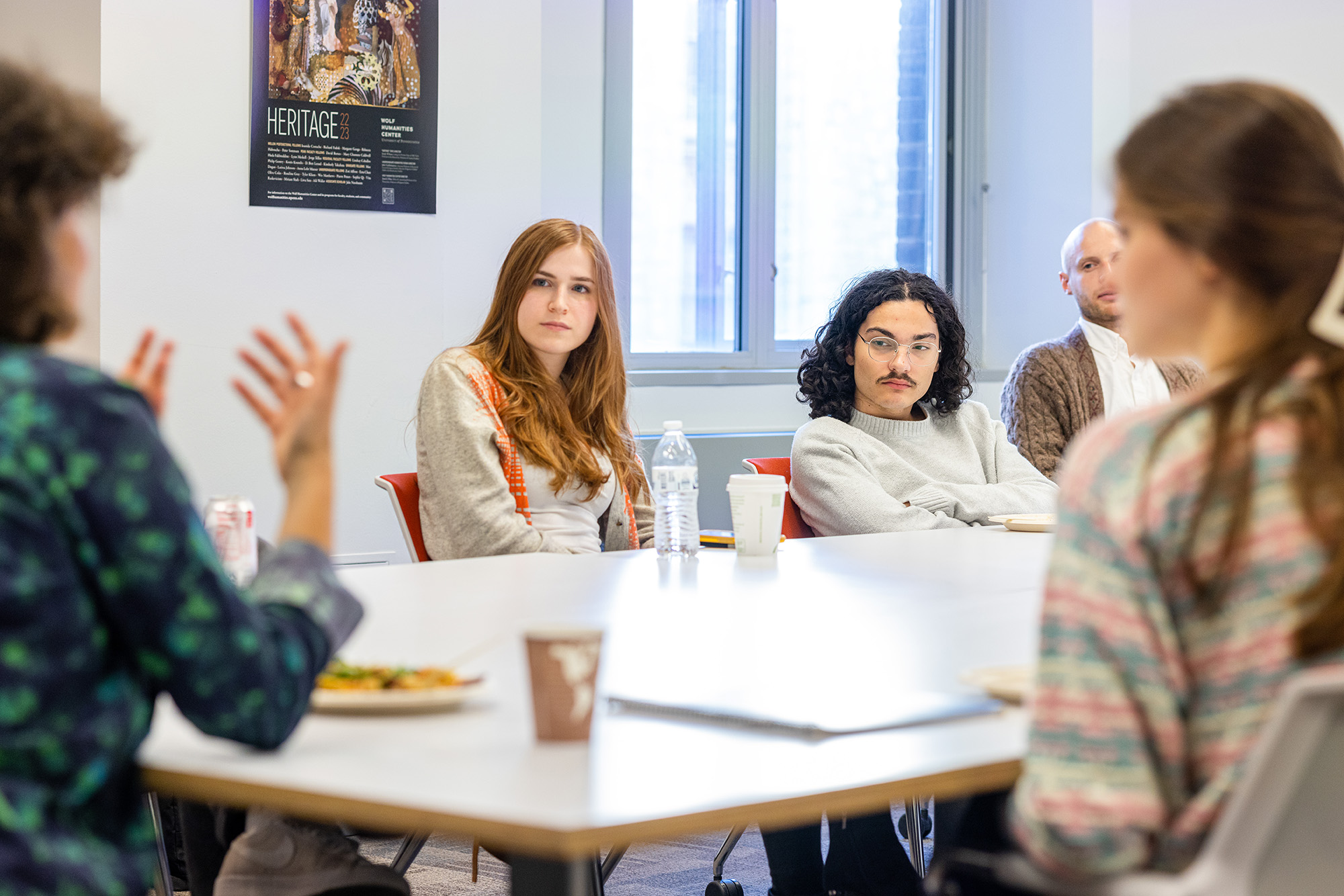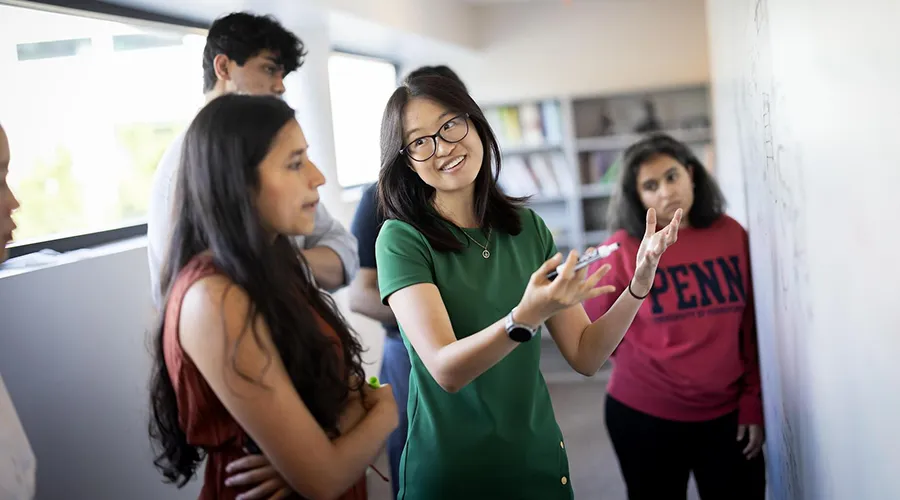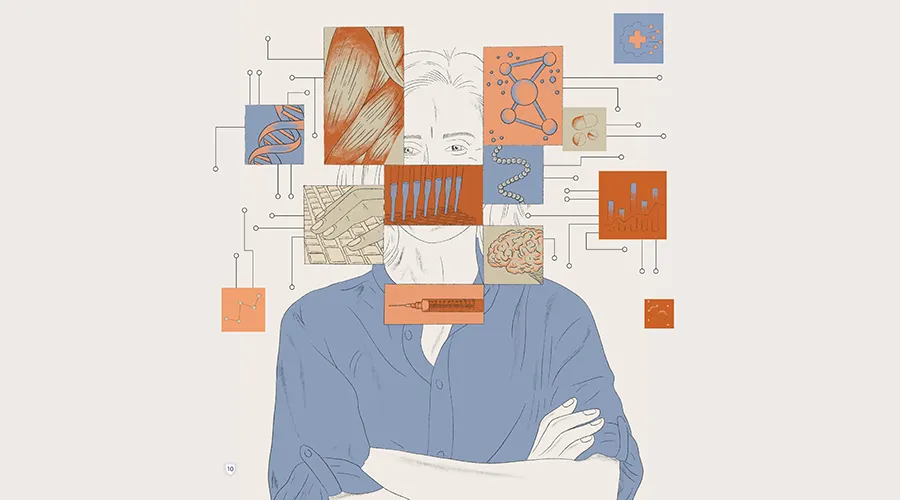Founded in 2017 with a gift from Noelle and Dick Wolf, the Wolf Humanities Center enables scholars and students to make sense of the present by understanding the past.
The Power of the Humanities
The Wolf Humanities Center examines today’s most important issues using the humanities as a lens
Biology and chemistry can tell us how the vast and intricate systems of our bodies work, physics and astronomy can tell us how celestial bodies move through the night sky, and engineering helps us construct buildings that rise into the clouds. But to investigate the question of who we are and why we do things—not what we are or how we work—we must turn to the humanities.
The Wolf Humanities Center at Penn Arts & Sciences is delving into that vital question. Through the Center’s wide array of events and programs, it examines how the humanities speak to the most important issues of the day and reflect who we are as a society.
Professor Jamal J. Elias is the Center’s director. He is also the Walter H. Annenberg Professor of the Humanities and Professor of Religious Studies. His scholarship is focused on Islamic thought, literature, and history in Western, Central, and South Asia, with an emphasis on Sufism and visual culture.
Our goals are to demonstrate how vital the humanities are to the life of the mind and the health of society. They are fundamentally connected with many areas of urgent inquiry in medicine, law, business, and the sciences. Being able to contextualize information and think beyond immediate problem solving is vital. The humanities allow people to bring together a great deal of knowledge, analyze it, and contextualize it.”
Jamal J. Elias, Walter H. Annenberg Professor of the Humanities and Professor of Religious Studies
The precursor to the Wolf Humanities Center was called the Penn Humanities Forum, which was founded in 1999. As a direct result of a gift from Noelle and Dick Wolf and support from the School of Arts & Sciences at Penn, the Forum was transformed into the Wolf Humanities Center in 2017.
Since that time, it has vastly expanded its activities, serving as Penn’s main hub for interdisciplinary humanities research and public programming. Its growth has been supported by grants from a variety of sources and philanthropy from S.T. Lee and the Hershey Family Foundation. However, the initial gift from the Wolf family and the ongoing commitment from Penn’s School of Arts & Sciences continue to be the core sources of support.
Each year, the Center chooses a theme for its programming. This year, it’s “Heritage.” The events have been diverse: lectures, jazz performances, films, poetry readings, and much more. But whether the subject of an event is an 18th-century Japanese play or a documentary on the lived experiences of Deaf people, they all speak to the questions of history, values, and culture that make up the idea of heritage.
In addition to the Center’s programming, it awards postdoctoral fellowships to five junior scholars, and offers support for Penn faculty members and their research, support for faculty members from colleges and universities around Philadelphia, and fellowships for Penn graduate students.
Each year, the Center also selects around a dozen undergraduate students to become fellows in the Undergraduate Humanities Forum. The students become part of the Wolf community and meet regularly in a seminar with the Wolf Faculty Director to share and workshop their research. The students then present their scholarship at the annual Undergraduate Humanities Forum Research Conference, which they also organize.
Roseline Gray, C’23, was an Undergraduate Fellow at the Wolf Humanities Center this year. A double major in international relations and Russian and Eastern European studies, she explores in her research how literary and religious texts from the past have contributed to the myth of Moscow as a “third Rome” and ideas of imperialism in Russia.
Roseline was born in Brussels and lived there her whole life before she came to Penn. She spent her childhood around fellow international students and fellow American expatriates, and, at Penn, she was drawn toward a major of international relations. But she found her passion in her humanities classes, where she learned about different people and cultures.
I want to understand people and how they leave a mark on the world. The humanities are an important way of understanding how people relate to each other and why things happen.”Roseline Gray, C’23
Every day when she turns on the news, Roseline sees the relevance of her humanities research. She sees the grim connection between the myths that fed into ideas of Russian imperialism and the ongoing war in Ukraine. And she sees similar resonances in the work of her peers on issues like artifact repatriation in museums or how the legacy of women painters in New York City in the 19th century has been erased.
“In the humanities, we see how we are always grappling with the past in our present moment,” she notes. “Even though there can be the pervasive idea that scientific empiricism is the best way to understand society, often the most honest and raw place to look is the humanities.”
Roseline described her fellowship at the Wolf Humanities Center as a culmination of everything she’s learned at Penn, particularly the University’s culture of valuing work that crosses disciplinary boundaries. The Center is a place where scholars of different perspectives can be in dialogue, and that interaction produces stronger research and more thoughtful scholarship. For Roseline, her experience at the Wolf Humanities Center has served as a perfect encapsulation of her academic journey.
“Penn looks a lot like Wolf,” she says, “and Wolf looks a lot like Penn.”
